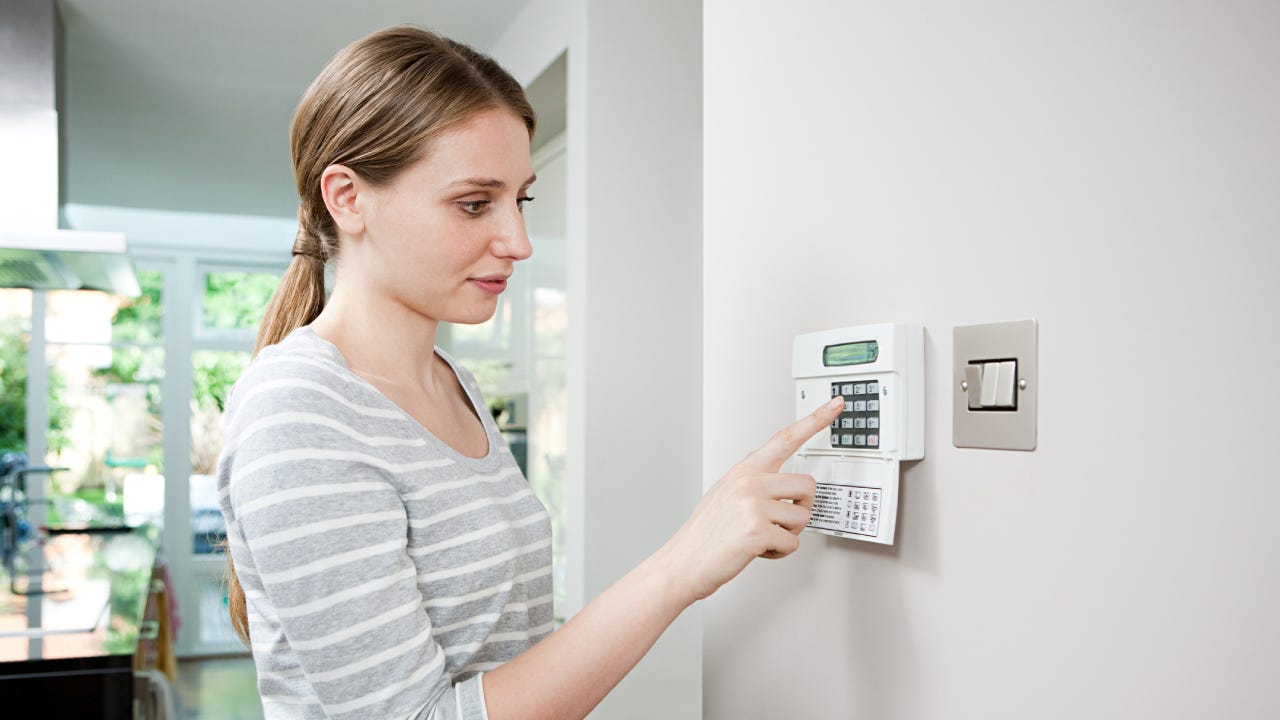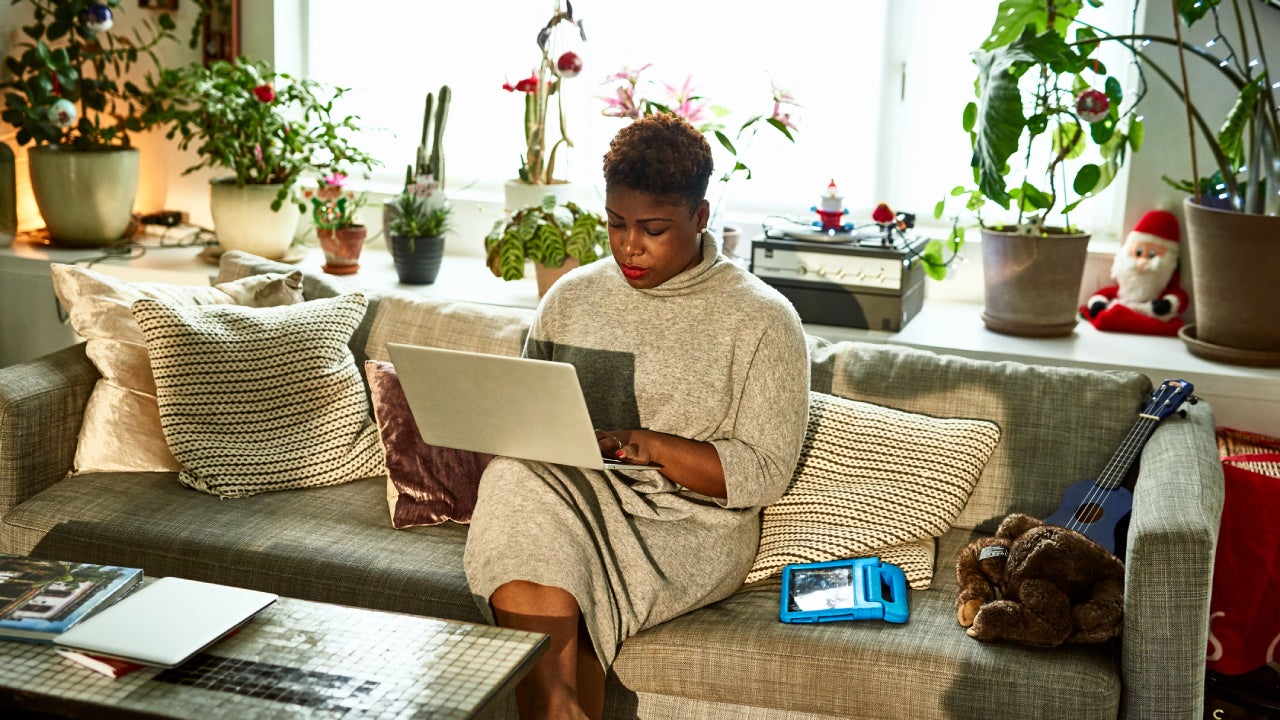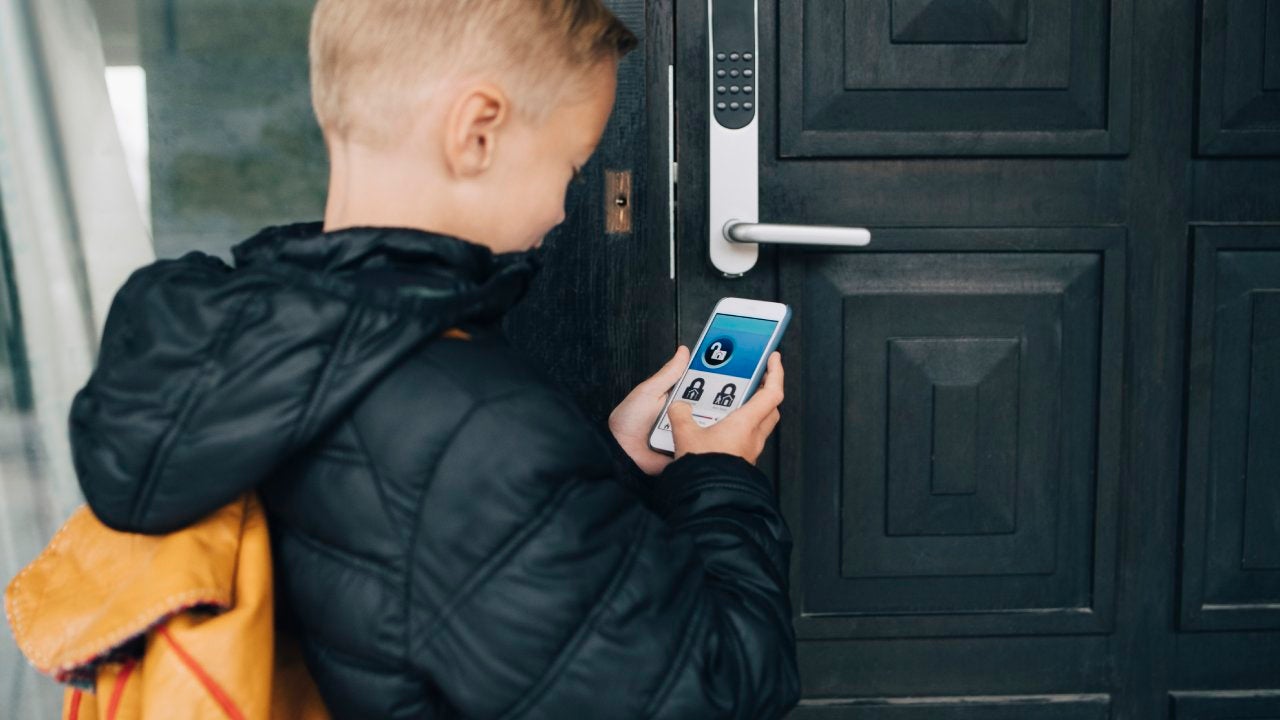How to secure your home on a budget

In any given year, about one in 700 insured homes files a property damage claim due to theft, according to the Insurance Information Institute (Triple-I). Although burglaries are down more than 18 percent since 2020, that doesn’t mean you don’t need to worry about them. In 2023, there were almost 840,000 reported cases of home break-ins, with the average loss per burglary somewhere around $2,660 per incident.
Your home insurance policy can reimburse you for property loss and home damage stemming from a break-in. But, it’s better for you (and your wallet) to take measures to secure your home before it catches a burglar’s attention. Here are our team of experts’ best tips on how to secure your home.
Affordable ways to secure your home
Securing your home doesn’t always mean shelling out on a high-tech security system. Even more minor, cost-effective methods can be enough to deter a burglar.
Security mailbox or lockbox
If you’ve been the victim of porch pirates, you may want to consider getting a security mailbox or lockbox. That way, instead of leaving your packages on your stoop for anyone to snatch, they’ll be tucked away in a locked receptacle. Prices vary based on how high- or low-tech you want your lockbox to be. More advanced models include features like app control, remote access and other alerts cost more, while simpler code-entry boxes tend to be more affordable.
Install a video doorbell — and don’t be afraid to use the audio function
Having a Ring camera or other video doorbell could be enough to keep a thief away. Most come with smartphone compatibility, allowing you to check who’s at your door even if you’re away from home. They also typically come with two-way audio, allowing you to respond in real-time to front door activity.
Add exterior motion lights
Motion-activated lights are another effective method of securing your home. They could startle a would-be intruder, deter them from targeting your home. Some can even connect to security cameras, and make the perpetrator aware that they are being recorded.
Install smart lights
Smart lightbulbs can add another layer of protection. When you’re out of town, you can set your lights to go off and on at different intervals, giving the appearance that someone is home.
Set up smart locks
A smart lock uses your home’s Wi-Fi system or your biometrics (like a fingerprint or retina scan) to lock and unlock your doors. Other iterations of smart locks may use a key fob, keypad or app to control the locks.
Cheap home security systems
A home security system doesn’t need to be expensive or elaborate. Here are a few of the top-rated home security products on Amazon under $300.
- SimpliSafe 8-Piece Wireless Home Security System: Average cost: $167 – $240. Includes one base station, one keypad, one motion sensor, one panic button and four entry sensors. You only need access to a power source and Wi-Fi to use it, and you can manage the system via mobile app.
- Ring Alarm 5-Piece Kit: Average cost: $200. Features one base station, one keypad, one contact sensor, one motion detector, one range extender and Amazon Alexa compatibility. Professional monitoring costs $20 per month, but you don’t need it to use the sensors and base station to monitor activity at your home via the mobile app.
- SOVMIKU CG6: Average cost $40 – $50. A solar-powered security camera that is fit for outdoor use and includes motion sensors, outfitted with two-way audio and mobile app management.
- GRSICO Wi-Fi Alarm System: Average cost $80. The nine-piece kit includes one alarm station, four door and window sensors, two remote controls, one motion detector and one keypad, and the option to expand up to 20 sensors and five remotes.
- MIHANI Solar Lights: Average cost $34 – $40. This lighting setup has three light panels that use LED high-brightness lamp beads, a solar panel with built-in tempered glass, a remote control and are weather-resistant. The lights have a motion detector feature, but you can also enable “permanent on all night mode” if desired.
Why home security matters for insurance
In addition to the peace of mind it offers, security systems may also lower your monthly home insurance premiums. Because a security system mitigates the risk of property damage and theft, some insurance companies reward customers with special discounts for installing such devices.
While companies don’t advertise specific discounts, you can generally expect anywhere from a 2 to 20 percent discount depending on how elaborate your security system is. In addition to earning a discount for a burglar alarm, you may also get a reduced premium for having fire alarms and deadbolts.
Some major insurance companies that advertise discounts for installing a security system include:
I originally put in a security system after our condo was robbed. I upgraded it once we moved into our home, adding three Ring cameras around the house. Our home insurance lowered a bit once I sent them proof of monitoring. It didn’t drop a ton, but every cent helps, and I rest easier knowing my house has better security coverage.
— Ryan Flanigan Bankrate, Credit Cards Writer
Other ways to secure your home
Of course, getting one of the best cheap security systems is just the start when it comes to securing your home. There are other ways to deter would-be vandals by signaling that your house is not a good target. The following tips may prove helpful in securing a new home or upgrading the security at an existing residence.
- Keep a large dog bowl on your porch. Criminals would rather vandalize a home that doesn’t have any pets, so if they see evidence that you have a dog, they may think twice before stepping onto your property.
- Put up fake security cameras or a home security sign. Any indication your property is under surveillance — even dummy cameras or fake signs — can help deter criminals.
- Get to know your neighbors. Your next-door neighbors can be your best home security system because they will most likely notice if something is amiss. Neighbors can provide immediate assistance if necessary and can also check in on your home when you are away.
Frequently asked questions
You may also like

How, and why, to set up a trust for your house

7 ways to save money on home maintenance

Home warranty vs. homeowners insurance

How much does a home security system cost?


